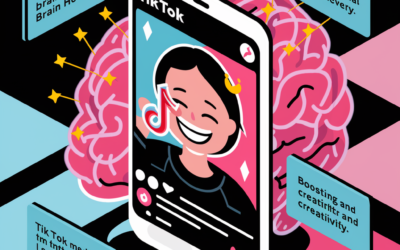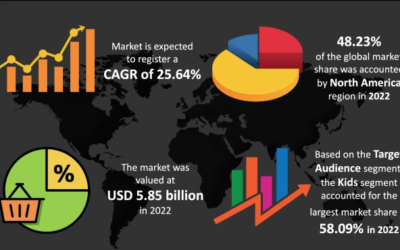
Ways to Impact Your Business with AI: Transforming Industries and Operations
If you are looking to impact your business with AI (Artificial Intelligence) now that it has emerged as a transformative force in the business world, revolutionizing workflows, methodologies, and entire industries, this post will give you some insights on how to start. By mimicking human intelligence through sophisticated algorithms and technologies, AI is reshaping how companies operate, analyze data, and interact with customers. Its pervasive presence in various software applications and tools is fundamentally changing the way work is done, information is accessed, and decisions are made.
The Advantages of AI in Business
The integration of AI into business operations offers a multitude of benefits across various functions and departments. Noémie Ellezam, chief digital strategy officer at Société Générale, describes AI as a catalyst for their digital strategy, with far-reaching impacts across all business areas. Let's explore some of the key advantages:
Enhanced Customer Interaction and Experience
AI-powered tools like chatbots and virtual assistants are revolutionizing customer service interactions. These intelligent systems can handle a wide range of customer inquiries, provide instant responses, and offer personalized recommendations. By automating routine queries, businesses can provide 24/7 support, reduce wait times, and free up human agents to handle more complex issues. This not only improves customer satisfaction but also significantly reduces operational costs.
Data Analysis and Insights
One of AI's most powerful capabilities is its ability to process and analyze vast amounts of data at incredible speeds. AI algorithms can sift through structured and unstructured data, identifying patterns, trends, and insights that might be impossible for humans to detect. This capability enables businesses to make data-driven decisions, predict future trends, and gain a competitive edge in their markets. From sales forecasting to risk assessment, AI-driven analytics are helping companies make smarter, more informed choices.
Automation and Streamlining of Business Operations
AI is playing a crucial role in automating repetitive tasks and streamlining business processes. By integrating AI into existing tools and workflows, companies can significantly enhance efficiency and productivity. For example, AI can automate data entry, generate reports, schedule meetings, and even perform complex calculations. This automation not only reduces the risk of human error but also allows employees to focus on higher-value tasks that require creativity and strategic thinking.
Personalized Recommendations and Targeting
By analyzing consumer data and behavior patterns, AI enables businesses to offer highly personalized recommendations and targeted messaging. This level of personalization can significantly improve customer engagement, conversion rates, and overall customer loyalty. From e-commerce platforms suggesting products based on browsing history to streaming services recommending content tailored to individual preferences, AI-driven personalization is becoming increasingly sophisticated and effective.
AI Applications Across Business Functions
The versatility of AI allows for its application across various business sectors and departments. Here's a closer look at how AI is being utilized in different areas of business:
Accounting and Finance
AI-driven accounting software is revolutionizing financial management by automating tasks such as cash flow projections, transaction categorization, and tax computations. These tools can analyze financial data to identify trends, flag anomalies, and even predict future financial performance. In the realm of fraud detection, AI algorithms can process vast amounts of transaction data to identify suspicious patterns and potential fraudulent activities, significantly enhancing security measures.
Content Creation and Marketing
Generative AI is making waves in content creation, supporting tasks like writing, research, graphic design, and video production. This technology is particularly beneficial for marketing campaigns, document creation, and translation services. AI-powered tools can generate blog posts, social media content, and even personalized email campaigns, allowing marketing teams to produce more content efficiently and tailor their messaging to specific audience segments.
Customer Service
AI-powered chatbots and virtual assistants are transforming customer service operations. These intelligent systems can handle a wide range of customer inquiries, provide instant responses, and even process transactions. By automating routine queries, businesses can provide round-the-clock support, reduce wait times, and allow human agents to focus on more complex customer issues that require empathy and nuanced problem-solving.
Cybersecurity
In an era of increasing cyber threats, AI is playing a crucial role in bolstering cybersecurity efforts. AI-powered security systems can monitor networks in real-time, detect anomalies, and respond to potential threats faster than human analysts. Machine learning algorithms can analyze patterns of behavior to identify potential security risks and even predict future attack vectors, allowing businesses to stay one step ahead of cybercriminals.
IT Operations
The integration of AI into IT operations, often referred to as AIOps, is streamlining data management, automating routine tasks, and providing valuable insights for quicker issue resolution. AI can predict and prevent IT outages, optimize network performance, and automate software updates and patches. This not only improves the efficiency of IT departments but also enhances the overall stability and reliability of business operations.
Human Resources
AI is transforming human resources management by automating tasks like resume screening, candidate matching, and even initial interviews. AI-powered HR tools can analyze employee data to predict turnover, identify skill gaps, and suggest personalized training programs. These capabilities not only streamline HR processes but also contribute to more effective talent management and employee development strategies.
Sales and Marketing
In sales and marketing, AI is being used to analyze customer data, predict buying behaviors, and personalize marketing campaigns. AI-powered Customer Relationship Management (CRM) systems can provide sales teams with actionable insights, helping them prioritize leads and tailor their approach to individual customers. In digital marketing, AI algorithms can optimize ad placements, personalize content, and even predict the success of marketing campaigns before they launch.
Supply Chain Management
AI is revolutionizing supply chain management by optimizing inventory levels, predicting demand, and improving logistics efficiency. Machine learning algorithms can analyze historical data and external factors to forecast demand more accurately, reducing overstock and stockouts. AI-powered logistics systems can optimize routing, predict maintenance needs for vehicles and equipment, and even automate warehouse operations with robotics.
Challenges and Ethical Considerations
While the benefits of AI in business are substantial, its implementation also comes with significant challenges and ethical considerations:
Data Privacy and Security
As AI systems rely heavily on data, ensuring the privacy and security of this information is paramount. Businesses must navigate complex data protection regulations and implement robust security measures to protect sensitive customer and company data.
Ethical Use of AI
The use of AI raises important ethical questions, particularly around bias in AI algorithms and the potential for AI to be used in ways that infringe on individual privacy or rights. Businesses must develop clear ethical guidelines for AI use and ensure transparency in how AI systems make decisions.
Workforce Displacement and Skill Gaps
While AI can enhance productivity and efficiency, it also has the potential to displace certain jobs. Businesses need to consider the impact of AI on their workforce and invest in reskilling and upskilling programs to help employees adapt to new roles and technologies.
Integration and Compatibility Challenges
Implementing AI systems often requires significant changes to existing IT infrastructure and processes. Ensuring compatibility with legacy systems and integrating AI tools into existing workflows can be complex and costly.
The Future of AI in Business
Looking ahead, the role of AI in business is set to expand and evolve:
Integrated AI Assistance
The future will likely see a shift towards more integrated AI assistance across all business operations, moving beyond standalone AI applications to AI-enhanced tools and processes throughout the organization.
Responsible AI and Governance
As AI becomes more prevalent, there will be an increased focus on responsible AI development and use. This includes developing robust governance frameworks, ensuring transparency in AI decision-making, and addressing issues of bias and fairness.
Collaborative Innovation
The advancement of AI in business will require collaboration among governments, businesses, and individuals. This collaborative approach will drive innovation while also addressing the societal impacts of AI technology.
The impact of AI on business is profound and far-reaching. From enhancing customer experiences to optimizing complex supply chains, AI is driving efficiency, productivity, and innovation across industries. However, the successful implementation of AI requires careful consideration of ethical implications, data privacy concerns, and workforce impacts.
As we move forward, the businesses that will thrive are those that can effectively harness the power of AI while navigating its challenges. This involves not just adopting AI technologies, but also fostering a culture of innovation, investing in employee skills, and maintaining a strong ethical framework for AI use.
The AI revolution in business is not just about technology – it's about reimagining how businesses operate, compete, and create value in an increasingly digital world. As AI continues to evolve, it will undoubtedly open up new possibilities and challenges, shaping the future of business in ways we are only beginning to understand.




























